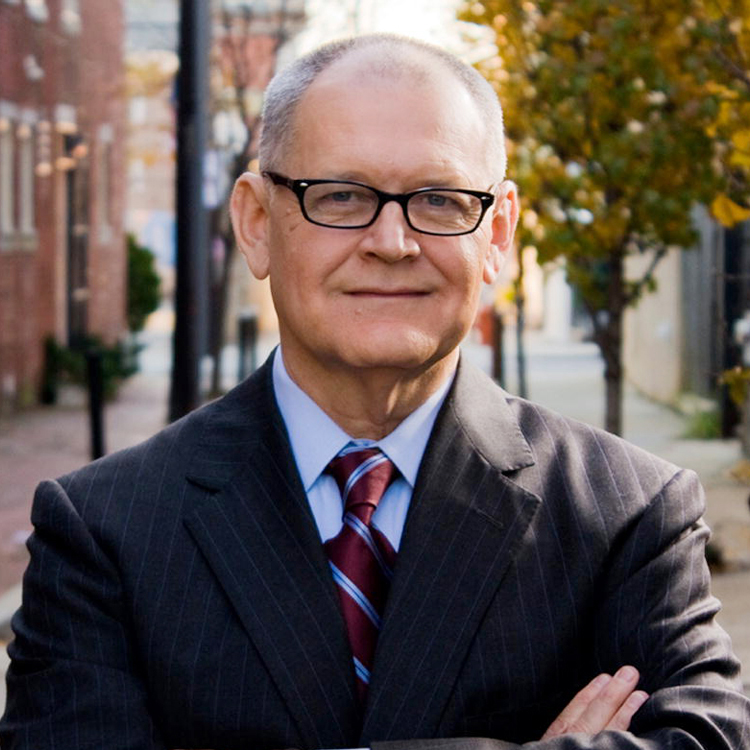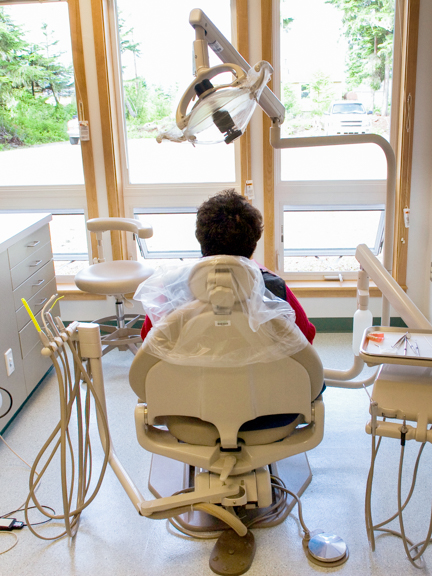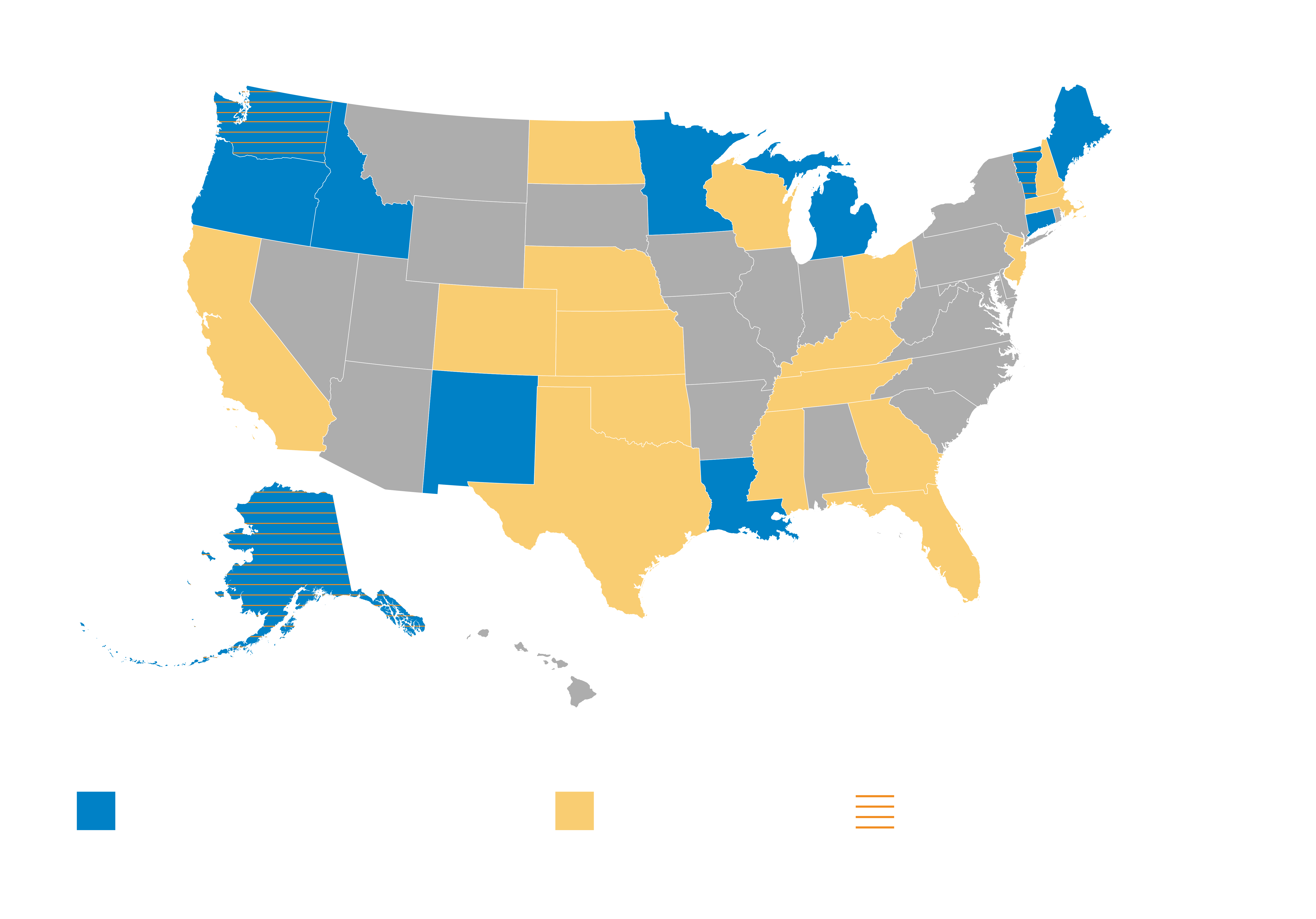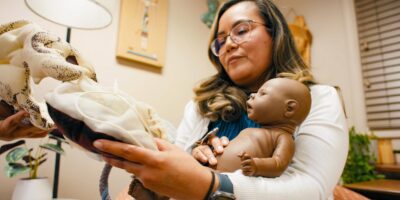The W.K. Kellogg Foundation (WKKF)’s new e-book, “For Want of a Dentist: The Rise of the Dental Therapy Movement in Tribal Nations and the U.S., Lessons from the W.K. Kellogg Foundation,” by Wendell Potter will launch Nov. 8, 2021. The book tells the story of an under-the-radar health crisis through the prism of an effective approach that centers equity, access and opportunity: the training and deployment of mid-level care providers, dental therapists.
WKKF sat down with author Wendell Potter to discuss the importance of the book and how to apply its lessons to today’s most pressing health care and racial equity opportunities.

Cavities (also known as caries or tooth decay) are one of the most common chronic diseases of childhood in the U.S. Untreated cavities can cause pain and infections that may lead to problems with eating, speaking, playing and learning. Children who have poor oral health often miss more school and receive lower grades that children who don’t.
Untreated dental disease has a large impact on quality of life and productivity:
More than 34M
school hours lost in the U.S. because of unplanned, urgent dental care.
More than $45B
is lost in productivity in the U.S. each year because of untreated oral disease.
Nearly 18%
of all working-age adults, and 29% of those with lower incomes, report that the appearance of their mouth and teeth affects their ability to interview for a job.
Black, Hispanic, Asian American and Pacific Islander and American Indian/Alaska Native children are less likely to see a dentist and receive preventative treatments than are White children, and more likely to suffer from untreated tooth decay.
Among children ages 3 to 5, 43.2% of American Indian/Alaska Natives have untreated tooth decay compared to 11.3% of White children. Tooth decay strikes 19.8% of Hispanic children in that age group, and 19.3% of African American children.
What was the impetus behind the book and why did you embark on this with the W.K. Kellogg Foundation?
Potter: The book chronicles the beginning of the dental therapy movement and provides a historical perspective and lessons learned. I have been working with the Kellogg Foundation on this project for a few years. I was in Battle Creek for a meeting. It was over lunch with WKKF Director of Communications Kathy Reincke, probably now five years ago, that we began talking about the importance of making sure that the work of this project was somehow memorialized. We talked about it being a legacy book that would be useful for future foundation staff and serve advocates, communities, other philanthropists and providers to help them learn about ways to advance health and racial equity in their communities.
"While the book shares the important history for the dental therapy movement, this project has applications for other work that tries to improve our health care system and improve access to care, and to improve the health and well-being of children."
A lot has changed in our public health infrastructure since the dental therapy movement began, even since you started writing this book. What can we apply today, particularly in the context of the pandemic?
Potter: Anything to improve the health and well-being of Americans right now is such a heavy lift. It’s very, very difficult to get anything achieved in the public policy arena at the federal or state level. Among the important things is to understand that real change is possible, even when you’re faced with truly well-resourced opposition, if you have certain elements in place.
At the community level, there are leaders and others in a community who can help to make sure that there’s an awareness of a need that’s not being addressed. Those community leaders need to be proactive to identify the problem and find remedies to whatever the problem might be. In this case, certainly it’s access to dental care. You can’t just rely on public policy makers to understand what the problem is and to get on board to push for a solution. It requires an effort at the community level and at the state level. Bringing together organizations that vary in mission and approach, and are dedicated to improving the health and well-being of people who live in the communities to work hand in hand with each other, is extraordinarily important.
Mid-level dental providers, introduced to the U.S. by the Alaska Native Tribal Health Consortium and known as dental therapists, are highly trained professionals qualified to provide preventive and routine dental care, such as applying fluoride treatments and sealants, filling cavities and performing simple extractions. According to research, dental therapists improve oral health outcomes. Tribal leadership paved the way for dental therapists to be authorized to practice in 12 states and several Tribal communities across the country.
Dental Therapy Across the U.S.
Alaska
Arizona
Connecticut
Idaho
Maine
Michigan
Minnesota
Nevada
New Mexico
Oregon
Vermont
Washington
Alaska, Idaho and Washington have authorized dental therapists to practice only in Tribal communities.
California
Colorado
Florida
Georgia
Kansas
Kentucky
Massachusetts
Mississippi
Nebraska
New Hampshire
New Jersey
New York
North Dakota
Ohio
Oklahoma
Tennessee
Texas
Wisconsin
Alaska
Vermont
Washington
The other important lesson is the role philanthropies play to making sure that there is meaningful change in health policy and health care. Philanthropies that are willing to, in many cases, take a reputational risk to move forward is critical. Opposition can sink policy proposals if there are enough resources behind it. The Kellogg Foundation stepped up at an important time and with a commitment to make sure that communities were supported and protected and could advance meaningful change.
Lastly, the pandemic has exposed and exacerbated racial inequities. One of the characteristics of our health care system in the United States is how so many people do not have access to it because of the color of their skin, where they live or what their zip code is. This project shows that there needs to be an understanding of what that means and how these inequities affect real-life, human beings in communities across the country. Through this work, we’ve learned that dental therapists can play a significant role in improving the health and well-being of people in those communities and can make a huge difference in closing inequity gaps.
You’ve written extensively about dental therapy. What surprised you most when working through the narrative for the book?
Potter: A number of things surprised me. However, one thing above others was just how little awareness there is of the inequities in dental care in this country, and what people go through when they don’t have access to care. Oral health is so important to overall health. I think many of us remember the Surgeon General’s report from 2000 and remember that it made a splash when it came out. Yet even I was quite surprised to find out the extent of the inequities in health care and just how many people don’t have access to it.
The other surprising thing is how communities can help solve problems in a way that involves people from within the community. It was extraordinarily important to inform policy makers and others that this is a way of bringing—at minimal expense— access to dental care in communities that are underserved. And communities are supporting the training of people from within those communities to go back, provide top-notch dental care within their scope of practice and make an incredible difference in the lives of children and families.
What are you hoping readers will take from this book?
Potter: I hope communities, local leaders and philanthropies will read the book and understand the role community leaders need to play in addressing inequities in health care—whether it’s a poor community in Los Angeles or New York or Albuquerque, a rural area in the middle of the country or on Tribal lands. Local leaders are essential in trying to figure out where communities can access resources and how they can communicate their community’s needs to people in authority at the state and federal levels.

"Ultimately, we hope to raise awareness of the enormous potential for dental therapy to bring good oral health to remote villages and low-income neighborhoods; provide a road map for advocates seeking to expand dental coverage or broaden health care reform; spur and bolster organizations that fund such efforts; and inform elected officials, academics and journalists who play critical roles in this debate."
Wendell Potter is an author, former corporate public relations executive and journalist. He started his career in his home state of Tennessee covering local and state politics–including the Tennessee statehouse–for The Memphis Press-Scimitar. He spent more than two decades in the health insurance industry, first at Humana and then at Cigna. He served as head of corporate communications for Cigna when he left after a crisis of conscience in 2008.
Since then, he’s written several books delving deeper into the health care industry, covering money in politics, propaganda and access. He also has written numerous commentaries and analysis pieces for a broad range of media outlets, including The New York Times, The Washington Post, USA Today, the Los Angeles Times, Newsweek, the Guardian, the Nation and the Center for Public Integrity.










Comments